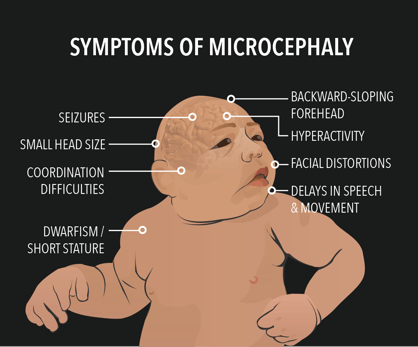BioResearch Product Faire™
Tags: Emory University, University of Alabama, BioResearch Product Faire™, Virtual, 2021
Posted by BCI Staff on Mon, Nov 02, 2020
Tags: University of Alabama, University of Alabama Birmingham, UAlab, Birmingham, 2020
Posted by Rebecca Partridge on Wed, Aug 22, 2018
The National Institutes of Health (NIH) recently awarded two large grants to University of Alabama researchers. A $2.5 million--four year--grant will support research into heart failure. A second, $2.3--four year--grant with be used to research treatment-resistant high blood pressure.
Read MoreTags: Bioresearch funding, Alabama, University of Alabama, University of Alabama Birmingham, UAlab, UAB, NIH funding, University of Alabama at Birmingham, BioResearch Product Faire, Bioresearch Grant, Cardiac Disease
Posted by Rebecca Partridge on Tue, Aug 22, 2017
According to an article for UAB News, 40% of individuals infected with HIV are not currently receiving antiretroviral therapy, which means their disease is not suppressed. The University of Alabama, Birmingham’s Center for AIDS Research recently partnered with state and local agencies in signing the Paris Declaration to eliminate the spread of HIV/AIDS by 2030. Birmingham is the 13th U.S. city to commit to achieving the Declaration’s goals.
Read MoreTags: Bioresearch funding, AIDS Research, Alabama, University of Alabama, University of Alabama Birmingham, UAlab, UAB, NIH funding, University of Alabama at Birmingham, BioResearch Product Faire, Bioresearch Grant, NIH awards 2017
Posted by Rebecca Partridge on Tue, Aug 08, 2017
Last year, the University of Alabama at Birmingham Comprehensive Cancer Center was awarded a five-year, $29 million grant for the National Cancer Institute. The Cancer Center now receives nearly $6M a year in NCI core funding and will continue to do so through 2021. In addition to this core grant, UAB CCC has received over $8.5M in research funding from the NCI during the first half of 2017. This brings their total NCI funding to $14.5 million.
Read MoreTags: Bioresearch funding, cancer research, Alabama, University of Alabama, Cancer Treatment, Cancer, University of Alabama Birmingham, UAlab, UAB, University of Alabama at Birmingham, Cancer Center, cancer researchers, fight cancer, cancer reserach, Bioresearch Grant, Comprehensive Cancer Center
Posted by Rebecca Partridge on Wed, Jun 29, 2016
 (Image courtesy of Wikimedia commons)
(Image courtesy of Wikimedia commons)
University of Alabama at Birmingham received a $29 million grant from the National Cancer Institute. This five year core grant will support six research programs at the UAB Comprehensive Cancer Center. The renewal of the Cancer Center Support Grant, the most prestigious federal grant that a cancer research and treatment program can earn, also extends UAB’s elite “comprehensive” designation. According to the UAB News website this designation is awarded for scientific excellence and the ability to integrate diverse research approaches in the fight against cancer.
Read MoreTags: Bioresearch funding, cancer research, Alabama, University of Alabama, Cancer Treatment, Cancer, University of Alabama Birmingham, UAlab, UAB, University of Alabama at Birmingham, Cancer Center, cancer researchers, fight cancer, 2016, cancer reserach, Bioresearch Grant, Comprehensive Cancer Center
Posted by Rebecca Partridge on Mon, Jun 06, 2016

(1886 Sketch of Person with Parkinson's by Sir William Richard Gowers Courtesy of Wikimedia Commons)
Researchers at the University of Alabama, Birmingham have discovered a potential new approach to reducing the damage done by Parkinson's disease. They found that suppressing a key cell-signaling pathway in the brain lessened the destructive inflammation and nerve degradation in the area of the brain affected by Parkinson’s. In the study, rats were used to model the disease by inducing an overexpression of a-synuclein, a protein that is abundant in the human brain. The accumulation of α-synuclein is a core feature of Parkinson’s disease. This accumulation leads to the activation of the brain's immune cells and the production of inflammatory signaling chemicals, which leads to neurodegradation. The rats that were then given a JAK/STAT pathway inhibitors (known as Jakinibs) did not have the immune response, the inflammatory activation, or the neurodegeneration that those that did not receive the inhibitor experienced.
Read MoreTags: Parkinson's Disease Research, Alabama, University of Alabama, University of Alabama Birmingham, UAlab, Birmingham, AL, University of Alabama at Birmingham, 2016, Parkinson's Disease
Posted by Rebecca Partridge on Fri, May 06, 2016

Microcephaly has been linked to the Zika virus
(Photo courtesy of of wikimedia commons)
With Zika outbreaks in Mexico, Central America, and South America, the National Institute of Child Health and Human Development (NICHD) is attempting to stop the virus at our border. To assist with this effort, the institute is funding a study led by Dr. William Britt, Professor of Pediatric Infectious Diseases at the University of Alabama at Birmingham (UAB). This study will take place in Brazil, where the World Health Organization (WHO) estimates that between 500,000 and 1.5 million people have been infected by Zika. The study will follow pregnant women in Brazil regardless of their Zika virus infection status and follow the infants suspected of having Zika from birth until 2 years of age.
Read MoreTags: Bioresearch, University of Alabama, South, University of Alabama Birmingham, UAlab, UAB, Birmingham, AL, BioResearch Product Faire, microcephaly, zika, Dr. Britt
Posted by Anita Zhang on Wed, Jul 30, 2014
Human papillomavirus (HPV) is the most common sexually transmitted infection in the world. Nearly all cases of cervical cancer are believed to be caused by HPV infection, which cause more than 270,000 deaths annually. Of the more than 85% are in developing countries.
Tags: 2014, University of Alabama, BioResearch Product Faire Event, UAlab, Birmingham, AL
Posted by Jennifer Nieuwkerk on Fri, Jul 18, 2014
Researchers at the University of Alabama recently received $8.1 million in life science funding from the National Institutes of Health for a study involving the etiology of geographic and racial differences in stroke. The life science grant was awarded in January of 2014 by the National Institute of Neurological Disorders and Stroke, a branch within the National Institutes of Health.
Tags: 2014, new research funding, Alabama, University of Alabama, University of Alabama Birmingham, BioResearch Product Faire Event, UAlab, Birmingham, AL, new grant